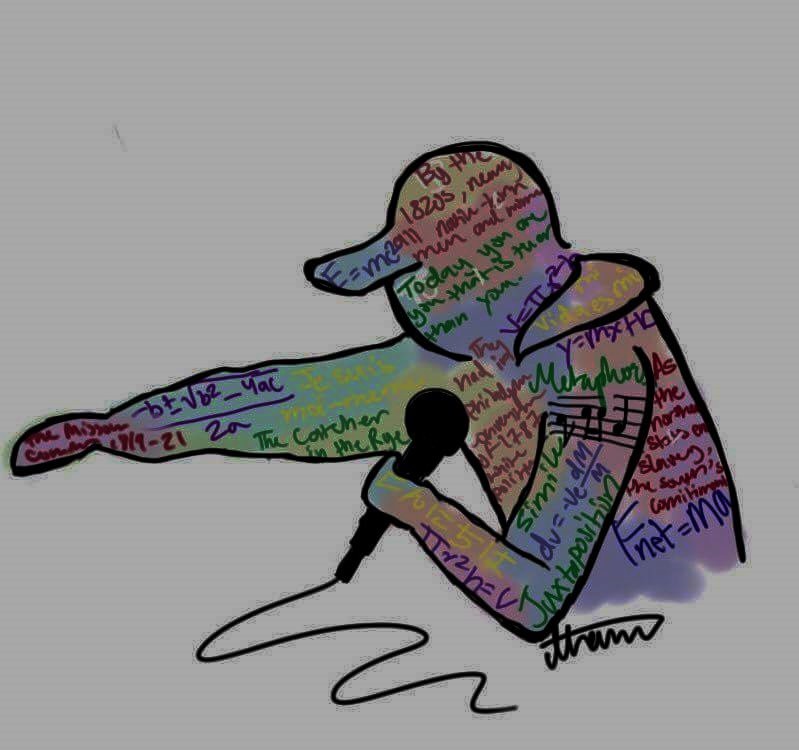Rap music has an indisputable presence in the lives of many Roosevelt students, and I don’t mean the rap videos the freshman year teachers show about Newton’s laws. But with the continuous waves of backlash against rap music and the lack of respect for the genre, it’s easy to forget that listening to rap is more than just a celebration of bad decisions, misogyny, and iffy role models like the conservative mothers of the America would like you to believe. In reality, listening to rap music and participating in the art form can actually be extremely beneficial and even educational (sure, F=MA was educational too, but that beat wasn’t sick enough to hit the whip to).
I’ll be the first to admit that not all rap is great, and it’s not untrue that problematic subject matter and unsavory ideals perpetuate the mainstream, commercialized segment of the genre. However denouncing an entire art form, especially one with such a deeply-rooted history and legacy, based on certain divisions closes off an entire world of rich culture. People didn’t stop regarding literature as valuable after the Twilight series was published.
Rap is one of the most accessible forms of self expression and also a pertinent outlet for change. As a result, a large body of rap music has originated from communities that don’t always have a voice or power in the mainstream media, Instead, they go about alternate routes of lyrical genius to gain authority and bring issues to the attention of the greater public. Think Kendrick Lamar from the gang-ruled streets of Compton, Tupac from a family plagued with incarceration in Harlem, or Jay Z from Brooklyn’s housing projects.
Especially when racism is still widely present in America and ongoing police violence committed against African American youth is so prevalent, countless rappers have taken to the studio and put out tracks addressing this deplorable state we’re in. Historically, rap music has been an unorthodox outlet of peaceful protest and even been a positive influence on youth in disadvantaged and dangerous areas. It’s an outlet for expression as well as a hobby that involves staying off the streets. All over the U.S. organizations are springing up that use rap and hip hop to encourage positive social change and expression. The ELEMENtary Hip Hop Skool in Tucson, Arizona empowers kids through rap and hip hop with leadership skills as well as promoting community involvement. Project Spitfire, a Chicago based nonprofit encourages young people to break from the cycle of gang violence and drug use by pairing young rappers who have interest in alternatives with professionals in the music industry to produce songs they write and perform about their experiences to show other youth the opportunities they might have.
But the best part about rap music, especially for Roosevelt kids, is that listening to this music can be extremely educational in showing alternate perspectives and realities that a lot of high schoolers in Seattle are completely unaware of. Besides providing a sick beat and impressive lyrical and vocal ability, rap opens up its listeners to the raw and emotional actualities of a world they may never partake in personally. Similarly, rap music can provide a record of history as well as an analysis on current events and any history teacher would agree that’s good for you. On the other end of the spectrum, the talents needed to write effective lyrics are dangerously close to a poet’s, and a good rapper’s sense of rhythm and prose as well as their understanding of literary devices rivals any other form of stereotypically scholarly writing.
So next time you’re cranking some Kendrick, Chance, or even Kanye, remember you’re not just listening to a sick beat; you’re getting educated.
Featured Picture: While many think otherwise, rap’s value transcends the beats and rhymes we find so enticing. Picture by Jyoti Lama
